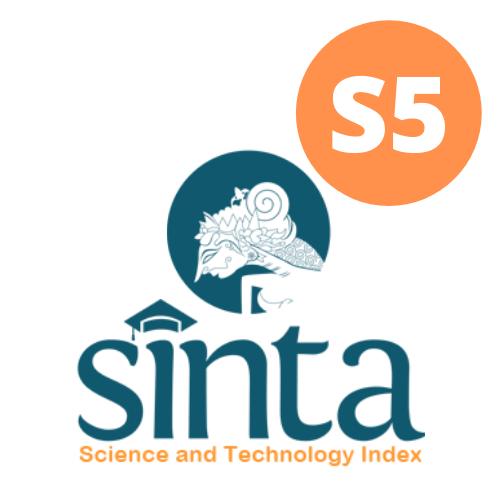Financial Literacy and Fintech Adoption in Indonesia: A Review from Campus Surveys and National Case Studies
Abstract
The financial technology (fintech) sector in Indonesia has experienced significant growth with widespread adoption across various demographic groups. However, this development also reveals systemic vulnerabilities, particularly in the context of the financial literacy gap among users. This article explores the relationship between financial literacy and fintech adoption in Indonesia by integrating findings from campus surveys and national financial literacy reports. The study emphasises the importance of structured, integrated, and behaviour-change-focused national financial literacy programs. The article also offers strategic recommendations for integrating financial education into formal curricula, fostering cross-sector collaboration, and promoting ethical design on fintech platforms to safeguard users and promote digital financial inclusion.
Keywords: Financial Literacy, Fintech Adoption, Education
References
and FinTech Adoption on Investment Decisions Among University Students. Majalah
Ilmiah Bijak, 22(1), 174-190.
[2] Arslanian, H., & Fischer, F. (2019). The future of finance: The impact of FinTech, AI, and
crypto on financial services. Springer Nature.
[3] Chishti, S., & Barberis, J. (2016). The FINTECH book: The financial technology handbook
for investors, entrepreneurs and visionaries. John Wiley & Sons ‘
[4] Chishti, S., & Puschmann, T. (2018). The WealthTech book: The FinTech handbook for
investors, entrepreneurs and finance visionaries. John Wiley & Sons.
[5] Fernandes, D., Lynch, J. G., & Netemeyer, R. G. (2014). Financial literacy, financial
education, and downstream financial behaviors. Management Science.
https://doi.org/10.1287/mnsc.2013.1849.
[6] Liana, W., Putra, I. H., Kosadi, F., Adrian, A. (2024). Financial Technology (FinTech):
Pengantar dan Inovasi Teknologi Keuangan. Sonpedia Publishing.
[7] Loesch, S. (2018). A guide to financial regulation for FinTech entrepreneurs. John Wiley
& Sons.
[8] Setiawan, B., Nugraha, D. P., Irawan, A., Nathan, R. J., & Zoltan, Z. (2021). User
innovativeness and fintech adoption in Indonesia. Journal of Open Innovation:
Technology, Market, and Complexity, 7(3), 188.
[9] Setiawan, I. R., & Fadilah, N. (2024). Financial Literacy and Its Influence on Student
Financial Behaviour. Jurnal Akurasi, 6(1), pp. 35–45.
[10] Tanda, A., & Schena, C. M. (2019). FinTech, BigTech and banks: Digitalisation and its
impact on banking business models. Palgrave Macmillan.
[11] Tobing, E. H. H., & Adrian, A. (2020). Fintech Era and Government Regulation. Jurnal
Manajemen & Bisnis Jayakarta, 1(2), pp.121–126.
[12] OECD. (2020). Financial Literacy for Youth: Policy Manual.
[13] Otoritas Jasa Keuangan (OJK). (2024). Survei Nasional Literasi dan Inklusi Keuangan
(SNLIK). https://ojk.go.id/id/berita-dan-kegiatan/publikasi/Pages/Survei-Nasional-
Literasi-dan-Inklusi-Keuangan-(SNLIK)-2024.aspx

This work is licensed under a Creative Commons Attribution 4.0 International License.
















